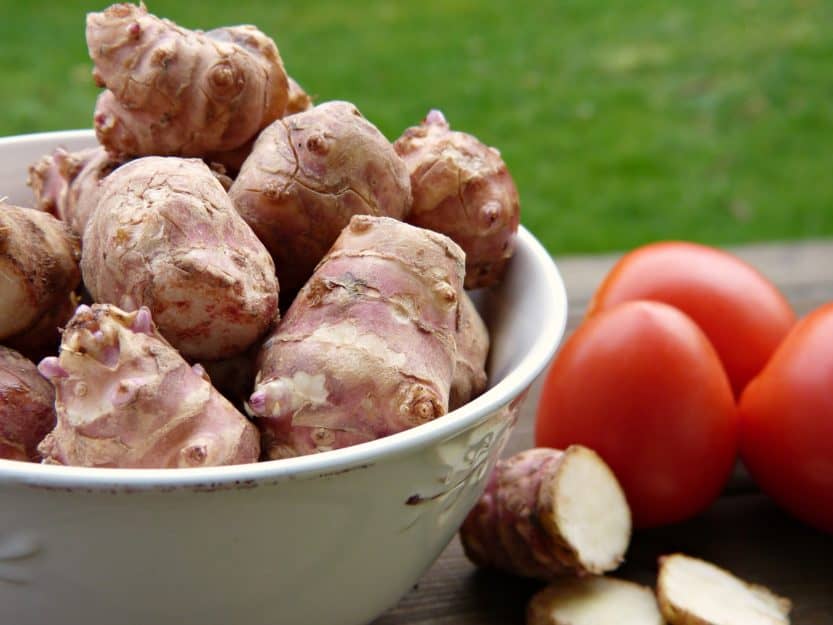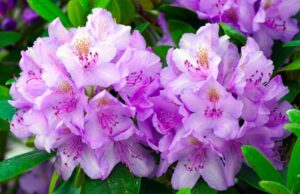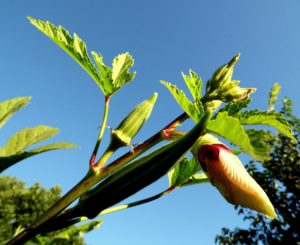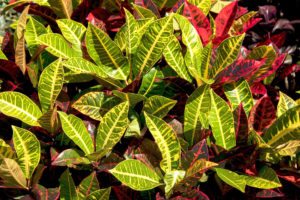The Jerusalem artichoke plant (a.k.a. Sun Root) is a relative of the sunflower, with smaller, yellow flowers. The Jerusalem artichoke plant, unlike its sunflower relative, produces a large number of edible roots.
Jerusalem artichoke roots are very nutritious, containing high levels of vitamin C, thiamine and niacin. The roots are also a very good source of copper, phosphorus, potassium, and iron.
Buy Jerusalem Artichoke Tubers Online
| Image | Name | Rating | Shop |
|---|---|---|---|
 | 1 LB Organic Jerusalem Artichoke Tubers | ||
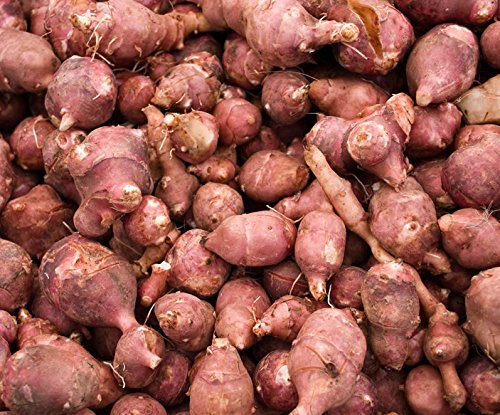 | Jerusalem Artichoke (Organic) 1 Pound – Hardy Red Fuseau | ||
 | Sunchoke – White Fuseau Variety |
Jerusalem Artichoke Inulin Benefits
Another unique nutritional component of the Jerusalem artichoke root is inulin. Inulin is a sugar that can act as a prebiotic, helping so-called probiotic bacteria thrive in the intestines, by providing them with a source of polysaccharides.
Jerusalem Artichoke Inulin Side Effects
Caution should be taken with foods that contain inulin because all people cannot easily digest them; and, in some cases, this can lead to gas and intestinal discomfort.
Jerusalem Artichoke Varieties
Jerusalem artichokes have been bred over the years to produce roots of different shapes and sizes. The wild types have knobby large roots that can be harder to clean. On the other hand, the more cultivated varieties have been bred to have smoothly tapered roots that are easy to harvest and clean.
Where can I get Jerusalem Artichokes
While the plants do produce seeds, the main method of propagation is by planting the roots. You can purchase the roots of many different varieties via mail order nurseries, or you can plant the roots purchased from a store or farmers market as well.
Jerusalem Artichoke Growing Zone
Jerusalem artichokes are a cold weather perennial and they do well in almost any climate. The best times to plant Jerusalem artichokes is during the late fall or early spring. As long as you can work the soil, the roots are ready to be planted.
One common issue with Jerusalem artichoke roots is that they tend to dry out rather quickly when they are out of the ground. If you have to wait for an extended period of time to plant the roots, you should store them in a vegetable crisper or in the refrigerator. If you have a root cellar or another area that is cool and humid, keep the roots there until you are ready to plant them.
Planting Jerusalem Artichokes
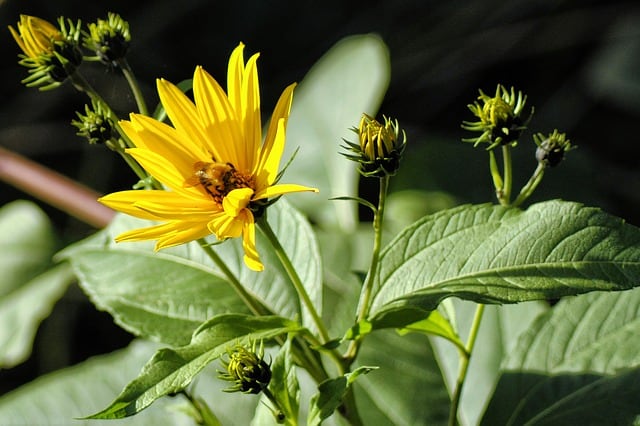
Where to Plant Jerusalem Artichokes
The Jerusalem artichoke plant is very similar to its sunflower cousin, and it also needs to be planted in a sunny location. You should also take into consideration the fact that Jerusalem artichoke plants can grow to be 8 to 10 feet ( 2.5 to 3 m) tall, so you should not place them in an area where they might shade your other crops during the growing season.
Jerusalem Artichoke Soil Requirements
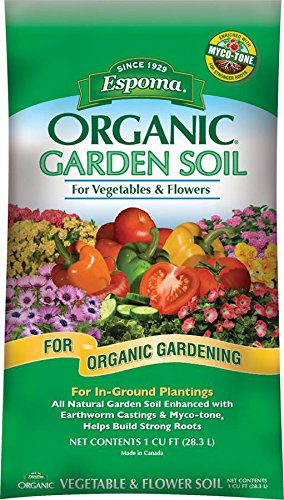
Jerusalem artichokes tend not to be picky about soil conditions, and a loose rich soil (Buy Online) is usually best for optimal root development. If your soil is dense or drains poorly, add some compost and or sand to the area. This will allow the roots to expand evenly and good drainage will reduce the risk of rot, while the roots are in the ground.
Jerusalem Artichoke Planting Depth
When you are ready to plant your Jerusalem artichokes, you should dig a hole for each root 6 inches (15 cm) deep and space them 16.5 inches (42 cm) apart. If you plant them in the fall, they will not emerge until the next spring, so watering is not really needed unless your soil is very dry. If you plant the roots in spring, then just water them after you plant them, because they usually will do just fine with regular spring rainfall.
Jerusalem Artichoke Care & Harvest
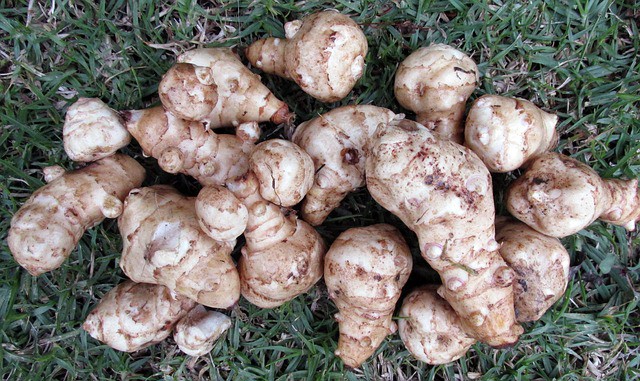
Jerusalem Artichoke Water Requirements
Jerusalem artichoke plants are very easy to care for and maintenance will be minimal thought most of the season. You can water the plants weekly if the weather has been dry, and 1 inch (2.5 cm) a week should be sufficient. Weeds may crop up around the base of your plants, but once the Jerusalem artichokes start to reach their full height, they will usually smother any weeds nearby.
Jerusalem Artichoke Pests and Diseases
Jerusalem artichokes are usually not bothered by insects to any great degree. If you see some leaf damage, the plants are usually not affected by this, so treatments are usually not necessary. You may encounter some powdery mildew on the plants in the late fall and this tends to be of no consequence, as they have already set tubers at this point.
For the most part, Jerusalem artichokes are a simple crop to care for; and the most work you might have to do, towards the end of the season, is to prop up any plants that might have fallen over after they have flowered.
When are Jerusalem Artichokes Ready to Harvest
Harvest time for Jerusalem artichokes comes in early to mid-fall, and you will know the plants are ready when the tops begin to die back. You can cut the large top growth away for easier access. You should actually get significant biomass from the dead stems, which can be added to your compost heap or shredded and used for mulch.
How to Harvest Jerusalem Artichokes
Once you can easily access the roots, loosen the soil around the base of the plant with a garden fork or shovel. Be careful not to damage any roots since damaged roots will be prone to rotting in storage. Jerusalem artichoke roots will tend to be concentrated right under the main stem but can be found much further from the plant than most other root crops.
Storing Jerusalem Artichokes
You can choose to harvest all the roots, or just what you currently need. Harvesting what you need is the best method, as Jerusalem artichoke roots do not keep well in storage, but keep perfectly underground. You can keep going back to the plants until the ground freezes to get fresh tubers.
Controlling Jerusalem Artichokes
Jerusalem artichokes can be invasive; and if you want to control their spread, keep them in an area that can contain them or remove all the roots every year, so they don’t spread out of control.


